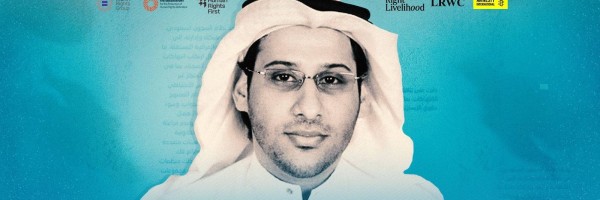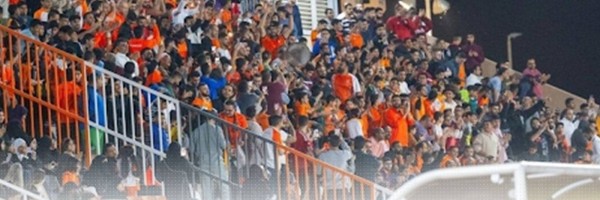Saudi Arabia has clearly misused counter-terrorism strategies for the purpose of stifling political dissent, suppressing opposition and silencing calls for reform by peaceful critics, according to the UN Special Rapporteur on protecting human rights while countering terrorism, Ben Emmerson QC.
Those who peacefully exercise their right to freedom of expression in Saudi Arabia are systematically persecuted, he says.
In a detailed and scathing report to the UN Human Rights Council, released on June 6, 2018, Emmerson states that the Saudi authorities should urgently review the overly broad and vague definition of terrorism in the country’s Counter-Terrorism Law so that it can no longer be used against peaceful dissidents and critics of acts of the State, the current regime and the Royal Family.
He says the Saudi government should urgently establish an independent legal mechanism to review all cases involving crimes allegedly committed by means of speech or writing, and to identify all individuals currently in prison for exercising their right to free speech, freedom of thought, conscience, religion or opinion, or the right to freedom of peaceful assembly and association. This mechanism should have the power and duty to commute their sentences or pardon them with immediate effect, he adds.
The UN Special Rapporteur’s report details evidence of unfair trials in the Special-ised Criminal Court (SCC), the court that originally heard only terrorist cases but has increasingly been used to prosecute political and human rights activists, usual-ly under a shroud of secrecy. The Special Rapporteur refers to “well-documented reports of the use of torture and ill-treatment by law enforcement officials against individuals accused of having committed acts of terrorism, and the use of coerced confessions as sole or decisive evidence in their conviction”, as well as information that the SCC has refused to launch investigations into allegations of torture.
Emmerson expresses grave concern about the lack of due process in terrorism cas-es generally, and especially where the death penalty may be imposed, and he notes with dismay that the Counter-Terrorism Law provides the death penalty for crimes that do not entail loss of life. He describes the Saudi authorities as “wedded to the cult of execution”, and calls their methods of execution in public as archaic, barbaric and inhumane in a way that “demeans and degrades the people of Saudi Arabia as a whole”.
The Special Rapporteur shared his preliminary findings with the Saudi government on May 4, 2017 at the end of a five-day fact-finding mission to the country, but his report shows that the authorities have not only ignored his key recommendations but in some cases actively flouted them. Far from bringing the definition of terror-ism in the 2014 Counter-Terrorism Law into line with international standards, the revised and even more draconian Law of 2017 has allowed a yet more repressive crackdown on the exercise of internationally protected civil and political rights. And whereas the Special Rapporteur called on the government to guarantee the pres-ence of lawyers automatically after a suspect’s detention – an important safeguard against abuse – the authorities not only disregarded this suggestion but introduced new provisions “in flagrant defiance of it”, so that the Public Prosecutor now has discretion to forbid lawyers from communicating with their clients at any time during the investigation.
“Rather than engaging positively and constructively with the issues,” says Emmer-son, “the government has resorted to blanket denials, bland reassurances and invo-cations of its own interpretation of the Sharia to justify its actions.
Counter-terrorism measures that violate basic human rights norms have proven to be both ineffective and counter-productive, the UN expert points out. “If it is to play any effective role in combatting international terrorism,” he says, “Saudi Arabia must urgently change course.”
ALQST strongly endorses the Special Rapporteur’s recommendation that the Saudi authorities must urgently review the definition of terrorism in the 2017 Counter-Ter-rorism Law and bring it into line with international human rights norms. Saudi Arabia must refrain from using counter-terrorism and national security legislation to stifle peaceful political dissidents and critics of acts of the State, the current regime and the Royal Family.
ALQST supports the Special Rapporteur’s recommendation that Saudi Arabia should urgently establish an Independent National Security and Due Process Re-view Mechanism to carry out a thorough independent review of all cases involving crimes allegedly committed by speech or writing. The Mechanism should first seek to identify all individuals who are currently serving sentences of imprisonment for acts that objectively constitute the exercise of their right to free speech, freedom of thought, conscience, religion or opinion, or the right to freedom of peaceful assem-bly and association. The Mechanism should have power to, and should, commute or pardon all such prisoners with immediate effect. The composition of the Mecha-nism should include one member of the senior judiciary, together with a majority of independent legal academics, lawyers in independent practice and representatives of civil society.
ALQST calls on the Saudi authorities to investigate promptly all allegations of torture and ill-treatment and other serious human rights violations in prisons and detention centres, and to ensure that coerced confessions are always inadmissible in law.


